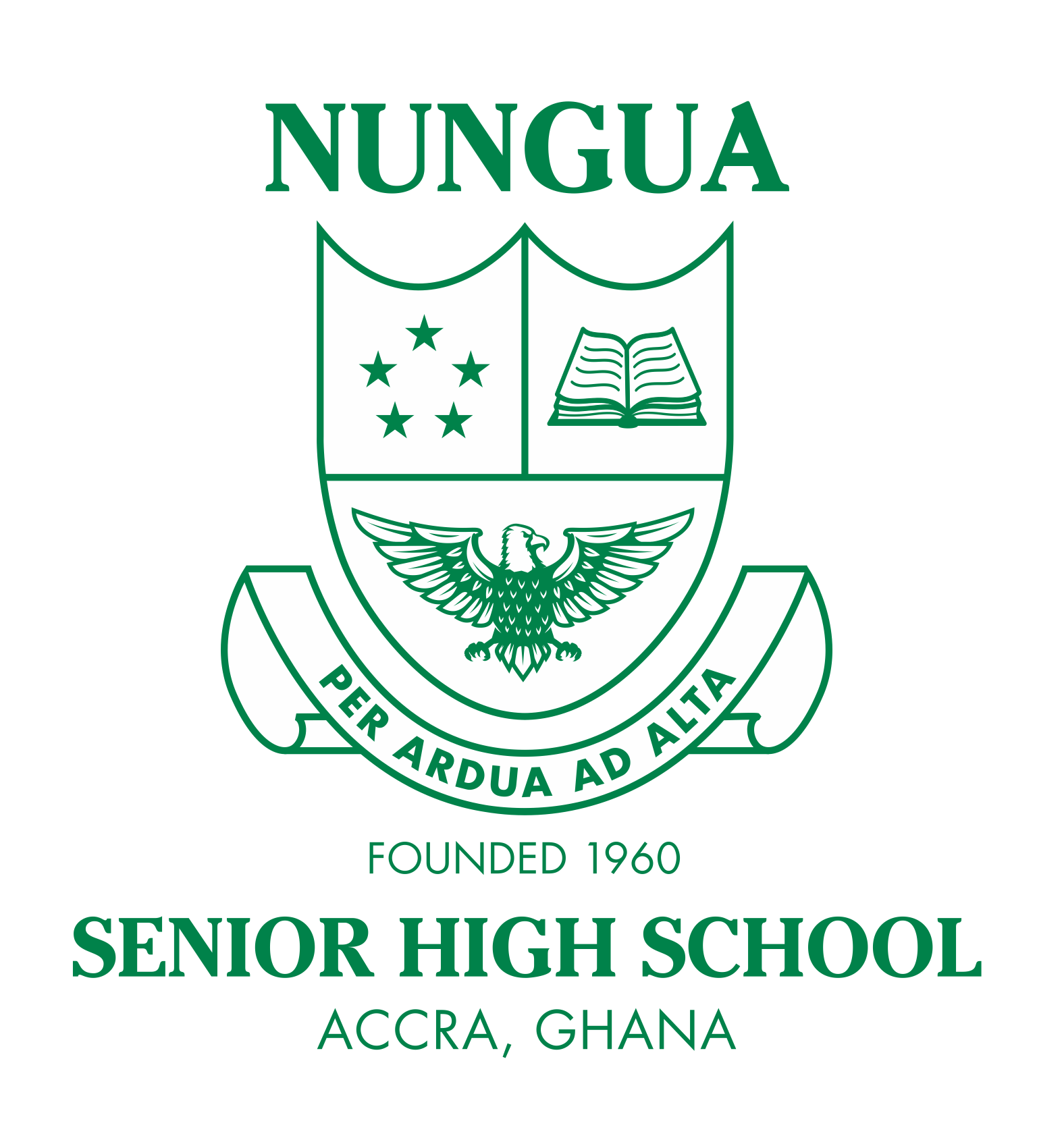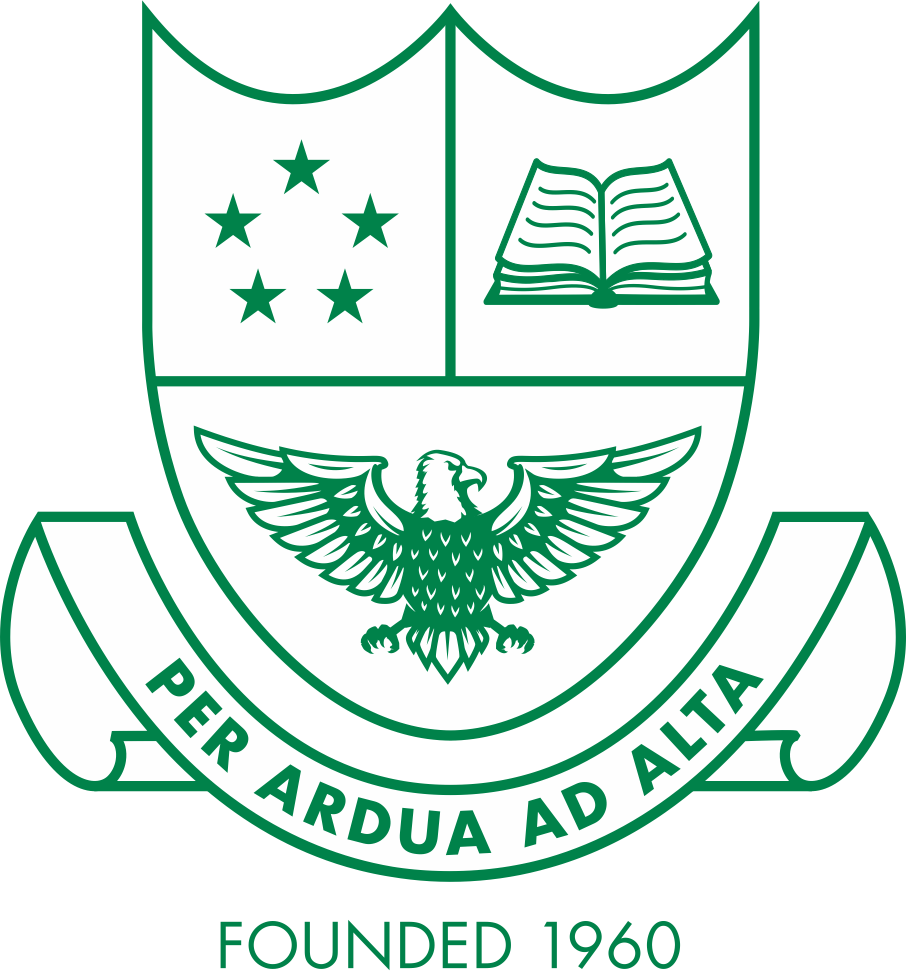
Nungua
Senior High School
About Us
Per Ardua Ad Alta - Through difficulties to the heights
Our History
The idea of establishing the first secondary school in Nungua was conceived in the year 1958 by Nii Quaye Tawiah, popularly known as Quaye Nungua, a prominent entrepreneur and significant son of that town.
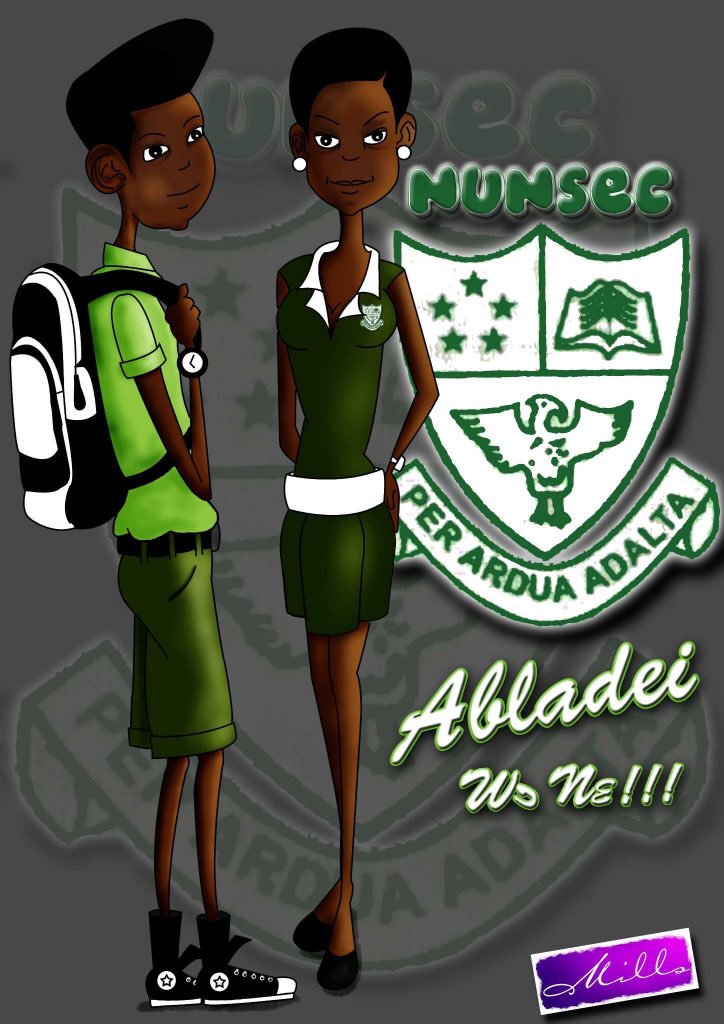
In that very year, his 15-year-old son, Master Enoch Otu Quaye, who was being mentored by Mr. E. J. Klufio, the Headmaster of the Presbyterian Secondary School, Odumase Krobo, and a Form 1 student in that School, had to be recalled home and installed a Chief of Nungua, i.e., Nungua Mantse with the stool name - Nii Odai Ayiku IV. The exigencies of this new role required that this young Chief would have to stay at Nungua to readily avail himself of Chieftaincy duties. However, this young lad had a great desire for academic honors and insisted that he be allowed to continue and complete his Secondary education.
His father consented but, rather than sending him back to Krobo Odumase, he decided to establish a local Secondary School at Nungua, his hometown, where Mantse Nii Odai Ayiku, IV, could pursue his academic studies and also be readily available for chieftaincy affairs and duties.
Within two years of his resolve, Nii Quaye Nungua had made swift sustainable preparations and converted into a Secondary School his multi-unit building complex on his then large residential compound, equipped with its own electricity generator, the only one in the town. That building complex, which later became the girls’ dormitory in nearly its original form, had previously been used by the Government to train teachers for Secondary and other Schools across Ghana. Thus began the journey of the first secondary school ever to be established in the Nungua Township.
NAMING THE NEW SCHOOL
What befitting name would be given to this newly established Secondary School? With its location in Nungua, and its being founded by an illustrious native son of the Town, the most befitting name pondered over and logically chosen was Nungua Secondary School. That name continued to be the name of the School until very recently, when, by the Government’s substitution of the phrase “Senior High School” for “Secondary School” across the Country, NUNGUA SECONDARY SCHOOL became NUNGUA SENIOR HIGH SCHOOL, although its nickname, GREAT NUNSEC is still in vogue.
THE MOTTO OF THE SCHOOL
The original Motto of the School was drawn from the Latin phrase- “Ut Primus Inter Pares Simus”- literally meaning “First Among Equals”.
This was an inspirational phrase, spurring all Nunsecans to strive for nothing less than the greatest. Later, that phrase was replaced by another Latin expression - “Per Ardua Ad Alta,“ not only resonating the core theme of its predecessor, greatness, but also showing how to attain it, hard work. Specifically, translated into English, the current phrase means, “Through Difficulties to the Heights;” or “Through Difficulties to the Stars,“ counseling that nothing GOOD comes EASILY, and that It takes GREAT PAINS and EFFORTS to attain GREAT HEIGHTS. In short, the Motto inspires and requires all Nunsecans to work hard with aspiration for nothing short of excellence and ultimate greatness in everything they do.
Symbolically, to make the ideals of the Motto a constant reminder in face of any challenges, it is etched on the School’s Crest, expounding its ideals by 5 Stars
THE SCHOOL CREST
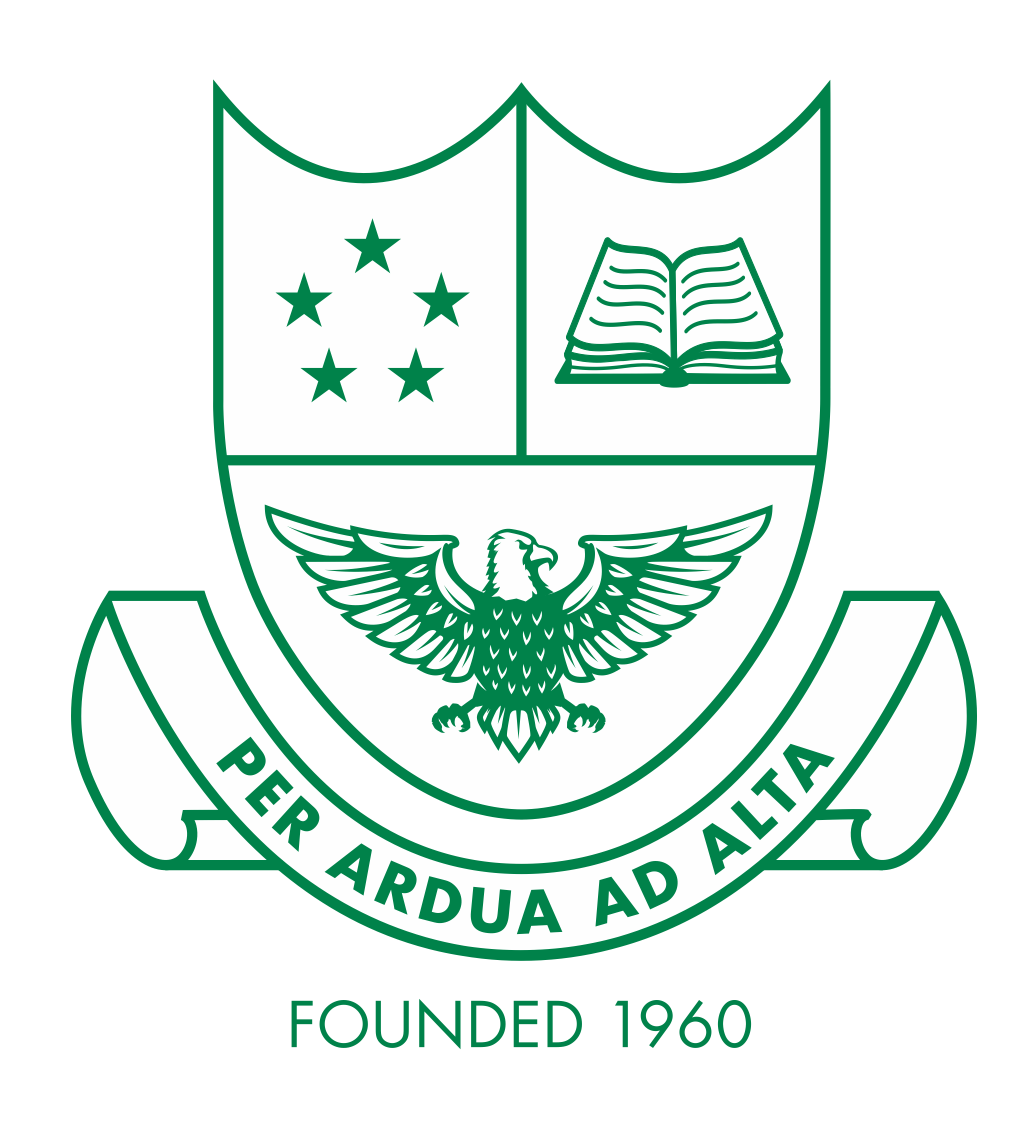
There are three basic symbols in the school crest.
- The Stars are symbolic of great heights of achievement to excellence in academics and all areas of human endeavors
- The eagle is strong, courageous winged creature with a farsighted wisdom. Those with an eagle-like spirit do not accept the status quo, but stretch themselves to reach higher heights and accomplish greater things. That should be the spirit of all Nunsecans.
- The open book is a symbol of selflessness, knowledge sharing, innovation, academic excellence, and spirituality with Divine backing, the succinct clarion call for all Great Nunsecans
OFFICIAL OPENING
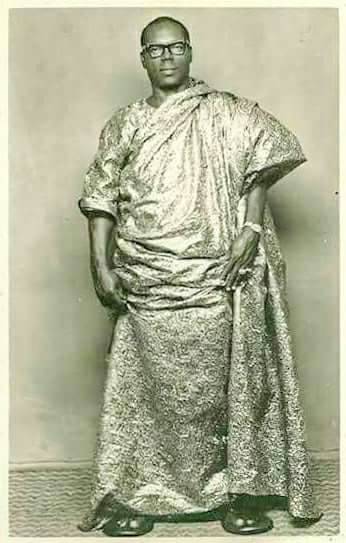
- Founder
On 4th January, 1960, the school was officially opened with two classrooms on the ground floor of the magnificent building that in later years became the girls’ dormitory and the dining hall.
The first student was, of course, Nii Odai Ayiku, IV. Nii Odai Ayiku, having attended some part-time classes in Accra, in the interim period, and three other young men — Lamptey Awuletey, Omaboe, and Lokko, with the appropriate secondary school background — were put into Form Two.
Nii Odai Ayiku, IV, served as a temporarily tutor for the Form One students, then taught by Sixth Form graduates, including a Mr. Blankson, who later became Dr. Blankson (Physician), and Mr. Tawiah. I Form One started with four boys and four girls, two of whom were Emelia Momo Quaye and Theodocia Korklu Quaye, daughters of the Founder. The third girl, Veronica Borquaye, was also from Nungua, while the fourth, Florence Adjetey, was from Teshie. Shortly after the Founding of the School, La Bone Secondary School through Dr. Ako Adjei, a member of Nungua Secondary School’s Board of Governors, transferred its old desks to Nungua Secondary in lieu of compensating Quaye Nungua for work done for La Bone.
Rev. E. J. Klufio, the Headmaster of the Presbyterian Secondary School, Odumase Krobo, to whom Quaye Nungua had entrusted Enoch Otu Quaye for academic upbringing and mentoring since 1953, heeded Quaye Nungua’s and the Nungua Secondary School Board of Governors’ entreaty for his son, Mr. E.S. Klufio, who had just finished Sixth Form, to both teach at Nungua Secondary School and serve as its Headmaster.Thus, Mr. E.S. Klufio became not only the first Headmaster but also one of the pioneering teachers, until he left to further his studies. Along with Dr. E. S. Klufio, the other pioneer teachers of the first two classes, Forms One and Two, included Mr. Baning, Mr. Blankson, Mr. Laweh, Mr. Tawiah, and Mr. Ahenkora who later became a Lawyer.
- First Student of Nunsec
Originally opened mainly as a Boarding school, Nungua Secondary School was equipped with 14 beds provided by the founder. In addition, it had a dining hall, the same dining hall that had been used for the teachers’ training school. The catering facility that had been used for the training school was not operational at the outset of the Secondary School. Therefore, the teachers and students bought their own food from the market and shops nearby. Students enjoyed the fun of cooking their own food and eating together, at times, with their teachers, at the dining hall.
The building that became the girls’ dormitory was the dormitory for the pioneer boys as well, except Nii Odai Ayiku, who lived at the bungalow that the founder had built for expatriates years before founding the School. That bungalow later became the residence of the Assistant Headmaster by name Mr. Anaman during the P, C, Ugboma era. Later it became the residence of Miss Dodoo who served as a House Mistress in the early Seventies, before being occupied in later years by Ms. Kate Bannerman another House Mistress who later became a Headmistress.
The first prefect and assistant prefect in the school were Masters Awuletey and Omaboe, respectively.
THE EARLY ACADEMIC CURRICULAR
The courses taught in the school were, among others, English Language, English Literature, History, French, Mathematics, General Science (comprising, Chemistry, Biology, and Physics), Ga, Bible Knowledge, Art, and Latin.
Classes in science were taken in La Bone Secondary School, and students were transported from Nungua to La Bone for their science classes by a multi-passenger Chevrolet that the Founder gave to the School shortly after its birth and occasionally by a Mercedes Benz bus that ran Quaye Nungua’s transportation business. Later, a truck was bought for the School, serving all the School’s transportation needs for decades
.In line with the educational system at the time, every student bought his own text-books and stationery. At the end of the academic year, the pioneer teachers had to leave the school for further studies.
Replenishing the teaching staff was challenging but, thankfully, a manageable task because the School was blessed with the friendship of many well educated personalities, people like Headmaster Klufio, the Honorables Dr. Ako Adjei, Mr. Coffie Crabbe, Mr. Peter Ala Adjetey, and Justices Nii Amaa Ollenu, E. N. P. Sowah, who readily gave leads to potentially qualified candidates. Additionally, the School tapped into Sixth Form Graduates who chose to do some work before continuing with their further studies.
Mr. W. Osafo Buabeng, who later became a legal practitioner in Accra and Tema, became the Headmaster from September 1961 to October 1962. By this point in time, the founder had built a new block of 6 classrooms ready for use.
The Headmaster, with the help of the Board and afore-mentioned resources, located and recruited qualified teachers to cope with the growing needs of the School. The founder, in turn, encouraged parents of the youth in Nungua and the neighboring towns and beyond to bring their children to the school, some of whom were given scholarships.
By December 1960, the number of students had grown from 12 to 50. The Library, formerly a large room storing spare parts for the founder’s fleet of vehicles and equipment, was established. In addition, practical music was introduced and taught under strict supervision of the Headmaster, himself a musician.
In 1961 the Teaching Staff included the following;
- Mr. Kofi Sekyiamah
- Mr. Anim
- Mr. Benjamin Nubuor
- Mr. Kofi A. Akyeampong
- Mrs. Constance Ansong
- and others
By mid-1962, Quaye Nungua, in preparation for the Government to take over the School, had completed the present boy’s dormitory with additional classrooms and the staff common room for the teachers.
The aesthetics of the School compound was enhanced with a floral look by the construction of a school roundabout, chiefly by the Housemaster, Mr. Micah.
Before the School was handed over to Mr. J. W. Acquah – M.A; BSC, in October 1962 as the New Headmaster, the number of students on roll had reached 226 and the school had attained full maturity as a Secondary School, i.e., it had classes from Form 1 to Form 5.
This growth was so great that the Headmaster had to regroup the Form 1s into three streams, Form 2s in two streams and Form 3s, 4s and 5, each in one stream. In October, 1962, the Government took over the School, making it a Government Assisted Secondary School.
THE FIRST BOARD OF GOVERNORS
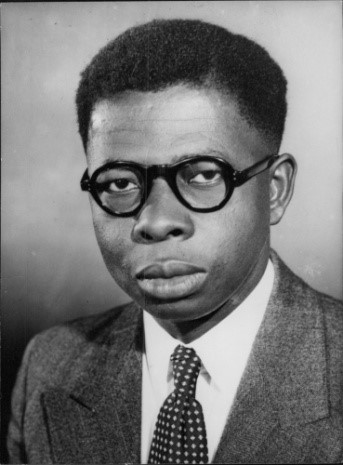
- Ex-Minister of Foreign Affairs
in the Nkrumah regime.
Co-Founder and 1st Chairman
of the Board Of Governors
[1960-1962]
The following persons constituted the first Board of Governors of the School with Nii Odai Ayiku IV as Honorary Life Chairman:-
- Mr. Ako–Adjei (Minister of Foreign Affairs in First Republic of Ghana) - Chairman
- Mr. H.H. Coffie Crabbe (Chief Administrative Secretary of the erst-while C.P.P) - Member
- Justice E. N. P. Sowah - Member
- Dr. J. E. Schandorf (A Medical Practitioner) – Member
- Mr. D. T. Tetteh (A Pharmacist of Teshie) - Member
- Mr. C. T. Nylander (Minister of Education in the First Republic) – Member
- Mr. J. A. Laryea - Member
- Nii Quaye Tawiah - Founder / Member
- Nii Afotey K. Sueye - Stool father of Nii Ayikuwe Ruling House
It was the tireless efforts of these gentlemen and the Founder’s solid financial support that sustained the School through its teething years, culminating in the takeover by the Government.
PLANS FOR INFRASTRUCTURAL AND LOGISTICAL EXPANSION OF THE SCHOOL
In 1964, Nii Odai Ayiku, IV, and the Founder, envisaging future expansion of the school, along with the Nungua Stool Elders, deeded a large track of land to the school. This land, Mr. Peter Ala Adjetey beyond Adogon, near the train line area, was intended for, among other things, sixth form classes, a school farm, a chapel, and a hospital and/or medical school. Students used to go and farm on that land. However, encroachers have, over the years, occupied that land, and efforts for their evacuation —still ongoing— have, at times, been daunting.
SUDDEN SUCCESSION OF HEADMASTERS
On September 21st 1966, Mr. P. C. Ugboma, B.A. (Hons), later LL.B (Hons), was transferred from La Bone Secondary School to head Nungua Secondary School. Thus, between August and September 1966, there were 3 Headmasters in Nungua Secondary School. One of them was Mr. E.K. Datsa, a former Geography teacher at Odumase Presec. He left Odumase Presec and taught elsewhere. Through transitional changes, he became the Headmaster of Nungua Secondary School immediately preceding Ugboma. However, he had to leave for Odumase Presec within a very short period of time because of a sudden vacancy that coincidentally opened for the Headmaster’s position at Odumase.
MR. P. C. UGBOMA ERA
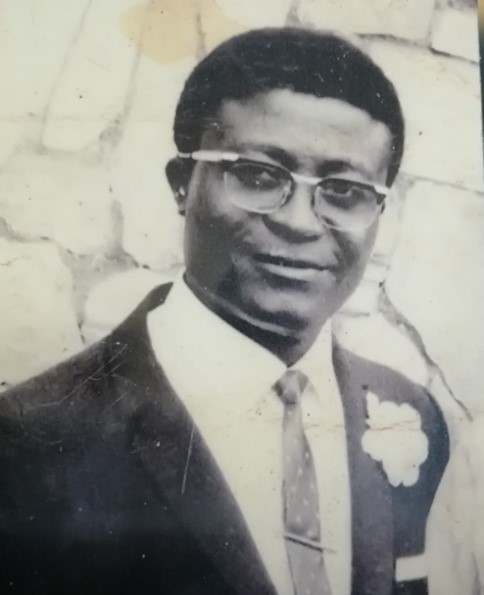
The history of Nunsec will not be complete without a mention of the disturbances and the developments that took place at the outset of the P. C. Ugboma period of 1966 to 1973. Specifically, without understanding new Head Master Ugboma’s ideas on disciplining and shaping the fastly growing School, the students clashed so terribly with him on the 19th of January 1967. The students rioted, destroyed property and even set ablaze the Headmaster’s car. These unfortunate events resulted in the closure of the School for a period.
After investigations of the riot, four [4] teachers, four [4] office clerks and seventy [70] students were dismissed in April 1967 by the Board of Governors upon consultation with the Ministry or Education.
Again in the following month, other office clerks, labourers and 2 Cooks were also dismissed. By November, 1969, when the then Commissioner for Education, Mr. Modjaben Dowuona, visited the School and spoke with the staff, and later the students, about the unrest at the School, the conflict had already patched up considerably.
In spite of the above mentioned events, the 1967/68 academic year was noted for its academic developments. Music, Commerce, Book-keeping and Shorthand were added to the curricular, as were Health Science and Pure Biology. In addition, the new business class was opened. Further, students were kept occupied in more extra-curricular activities. These included the Debating Society, the Current Affairs Club, and the Drama Society, the Nunsec Playhouse, and the Scripture Union.
One unique subject on School’s curricular in those years was Latin. Generally rightfully regarded as a dead language, students, nonetheless, were interested in some of its conjugational terms and phrases: “amo, amare, amavi, amatum;” and “amo, amas, amant, amamus, amatis, amant,“ etc. Yet, very few opted it for the O’Levels. In the 1968/1969 academic year, only one student, Richard Korsah, offered Latin at the O’Level examination. The subject was discontinued after the 1968-69 academic year.
THE NUNSEC CLARION
The Nunsec Clarion, a yearly magazine of the School, was started by the Creative Writing Club at this time.
EARLY MORNING TROTTING
The early morning trotting, still traditionally known in the School as a Keeping Fit regimen, has its roots as part of the Founder’s passion and chore. Specifically, the Founder, an avid believer in physical fitness, long before the founding of the School, used to ran with his sons in the wee hours of the morning from his residence on the campus to the Nungua Barrier and back. Later, he had just players in the Town’s soccer team that he had founded join in the early morning trolling. Upon founding the School, engaging Enoch Otu Quaye and his mates in the exercise, he ensured that the early morning running regimen was part of the curricular. That culture has continued undyingly to today, most possibly the reason Nunsecans are physically fit and athletically a force to reckon with.
Additionally, the School cultivated keen interest in football, netball, table-tennis, volley, athletics, entertainment and cleanliness, all of which became major components of the Inter-House Competitions. In fact, every student belonged to one activity or the other every evening. To top it all, the School was made an Examination Centre in the 1967/68 academic year.
Indeed, the advancement of the School was so remarkable that Mr. Ugboma persistently emphasized the need to extend the School to the deeded land. Thus Mr. T. T. Ashittey, acting on behalf of the next Headmaster, Mr. V. Y. Tei, B.A., 1973 to 1980, took up the expansion issue, except that the necessary funds to be provided by the Government were unforthcoming.
In September 1980, when Mr. J. A. K. Kaleku [B.A., ED.] assumed office, he continued to instill discipline and hard work in the School. By unswerving initiative, he raised funds and, with the support of the Parent/Teacher Association, expanded the dining Hall to serve also as an all-purpose gathering forum, especially Speech Days, which he revived with great pride and determination. Mr. J. A. K. Kaleku administered the school until the latter part of 1984. Between 1985 and 1991 the school was headed by Mr. P. A. DZITRIE [BA, ED].
RELIGION
Although non-denominational, the School is predominantly Christian, but also diverse, respecting the rights of non-Christians to freely pursue their religion by observing spirituality and Godly practices without any inhibition. Muslims, for instance, are afforded a free berth to have multiple prayers and observe the Ramadan. Correspondingly, as part of the School’s socio-academic measures to maintain decency, decorum, disciple, harmony, and fraternity, every student attends the early morning assembly where we all pray and sing, seeking Divine Guidance for our daily endeavors.
The mid 80s brought changes to the school and there was great improvement in sports. The school was a force to reckon with in Athletics and Football. The positive image of the school became so obvious that former students started associating with the school.
In the 1990s, Nungua Secondary School was a great force to reckon with despite the infrastructural challenges. With Teachers like Madam Kate Bannerman aka K. Banner, Mr Emmanuel Obeney as Senior House Staff residing on the compound maintaining discipline and giving needed support to the Headteachers, the School began to make many positive headlines again in both academic and extracurricular activities. Nunsec became synonymous with discipline. The community was very proud of the school and enrolment increased and the whole psyche of the students changed positively. They were very proud to identify with the school whose tradition was then having a positive impact on the students. There was a tremendous breakthrough from the year 2007 when the then Assistant Headmistress, who entered the school in 1983 after her national service and remained in the school, went through the ranks to head the school in 2007, arguably the longest serving teaching staff to have gone through this feat.
The school totally transformed during her seven year administration. The old classroom block was razed to the ground and a new 18 unit classroom block with all its ancillary facilities was built to replace the old block, A new Girls’ Dormitory Block was constructed; the Chameleon Hall was transformed into a multipurpose hall; the Science Block as well as the Home Economics block all sprang up within a spate of seven years. This gave the school a facelift and the school was at its best in all spheres during this period.
So many laurels were won at the sporting level and for four consecutive years Nungua Senior High School won the best behaved school at the stadium. Nunsec climaxed her academic prowess by winning the keenly contested NATIONAL SCHOOL Debate in 2014. At this juncture it will not be out of place if mention is made of students who made us proud. The contestants were Sophia Otoo, Keziah Djanie, Nora Boateng and Gideon Tetteh.
The teachers or “coaches” who dedicated their time and expertise in preparing them were Yaw Osei Agyeman, Josiah Nuertey, Edward Dugbartey, Philomena Afeku, Josephine Naih, Paula Ghanney and Mary-Angel Logah all from the English department.
The school has since been doing well whenever the Academic League table is published. Successive Heads have played and are still playing their part towards the improvement of the entire school.
On 4th January 2020, our school turned 60 years. On the 18th of January 2020, a year-long anniversary celebration of events was launched. Key note address on this occasion was deliverd by Dr. Mrs. Mary Chinery-Hesse, Chancelor of the University of Ghana, Legon. An anniversary durbar, which was organised as one of the climax of events had the President of the Republic of Ghana, H. E. Nana Addo Dankwa Akufo-Addo, as the Special Guest of Honour. He was however representated by Hon. Shirley Ayorkor Botchway, Minister, Foreign Affairs and Regional Integration of the Republic. Also present at the event was Honourable Elizabeth Afoley Quaye, Member of Parliament for Krowor and Minister for Fisheries and Aquaculture. Click here for the annivesary brochure. The event was well attended by all stakeholders and many year-groups of the school. The Theme of the celebration was "Leaving Lasting Legacies - Our ALma Mater"
Chronology of Past and Current Heads
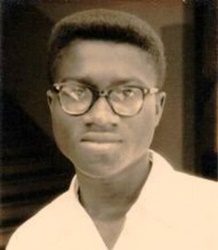
E. J. Klufio
Jan. 1960 - Aug. 1960
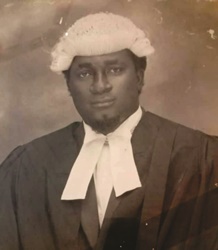
Mr. W. Osafo Buabeng
Sept. 1960 - Oct. 1962
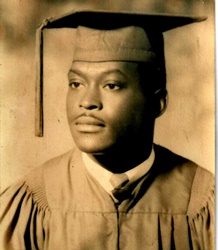
Mr. J. W. Acquah
Oct. 1962 - 1966
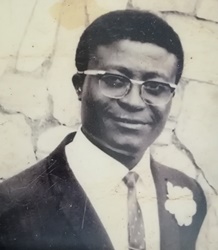
Mr. Patrick Ugboma
1966 - 1973
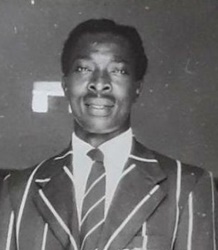
Mr. Victor Yao Tei
1973 - 1980
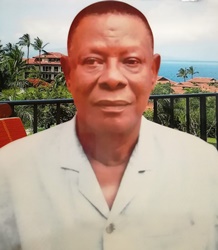
Mr. Albert J. K. Kaleku
1980 - 1984
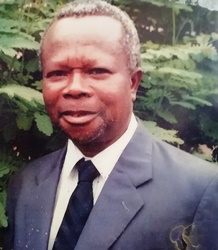
Mr. P. A. Dzitrie
1985 - 1991
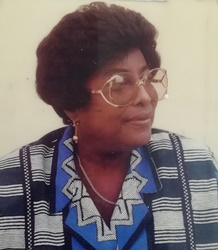
Mrs. O. Sekyiamah
1991 - 1999
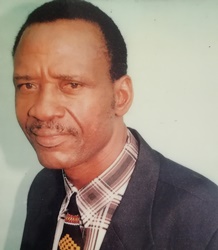
Mr. A. Enyan Mackin
1999 - 2005
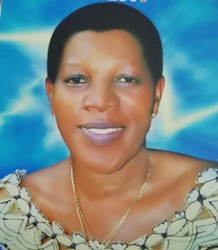
Mad. Kate Bannerman
2006 - 2014
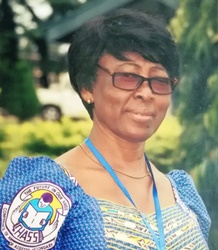
Mad. Cecilia A. Boateng
2015 - 2018
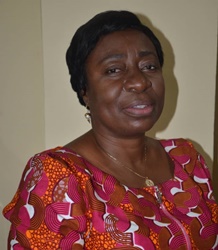
Mrs. Ellen Asare-Pepra
2018 - 2022
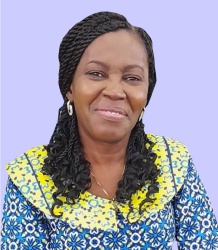
Mrs. Regina Naa-Kai Tetteh
2022 - Date
Administration
School Management Team As of 2023
- Mrs. Regina Naa-Kai Tetteh - Headmistress
- Mr. Matthew Adamani - Assistant Head Administration
- Ms. Millicent Dzandu - Assistant Head Academic
- Rev. Joseph Fiamawhle - Assistant Head Domestic
- Mr. Nelson Alfred Fummey - School Accountant
- Mr. Godson Dornyo - Senior Housemaster
- Ms. Dorcas Quaye - Senior Housemistress
Administrative Staff As of 2023
- Mr. Michael Syme - Administrator
- Patricia Lawerh - Principal Admin. Officer
- Charity Tornu - Principal Private Secretary
- Adjetey Mustapha Sowah - Principal Admin. Officer
- Alfreda Taylor - Stenographer Secretary
- Rosita Kofitse - Senior Clerk
- Randel Martey - Clerk
Board of Governors
Board of Governors
as at 2023
- Mr. Ellis Quaye - Chairman/Historical Rep.
- Mrs. EGloria N. A. Clerk - Director General's Rep
- Mr. Stephen Abamfo - Ag. Regional Director
- Ms. Justina Djabah - Municipal Director
- Mrs. Regina Naa-Kai Tetteh - Headmistress
- Mr. Enoch Amartey - NOSA Rep
- Mrs. Mary Nartey - NOSA Rep
- Mr. Seth Nublanui- Teaching Staff Rep.
- Mr. Michael A. Syme - Non-Teaching Staff .
- Ms. Cynthia Adongo - Krowor Municipal Assembly Rep.
- Mr. Samuel Oko Nee Whang - Krowor Municipal Assembly Rep.
- Mr. Kweku De-Graft - PTA Chairman
- Nii Afote Botwe II - Traditional Council Rep
- Mr. Matthew Adamani - Secretary
Copyright protected @ Nungua Senior High School. Designed by Box Bran
